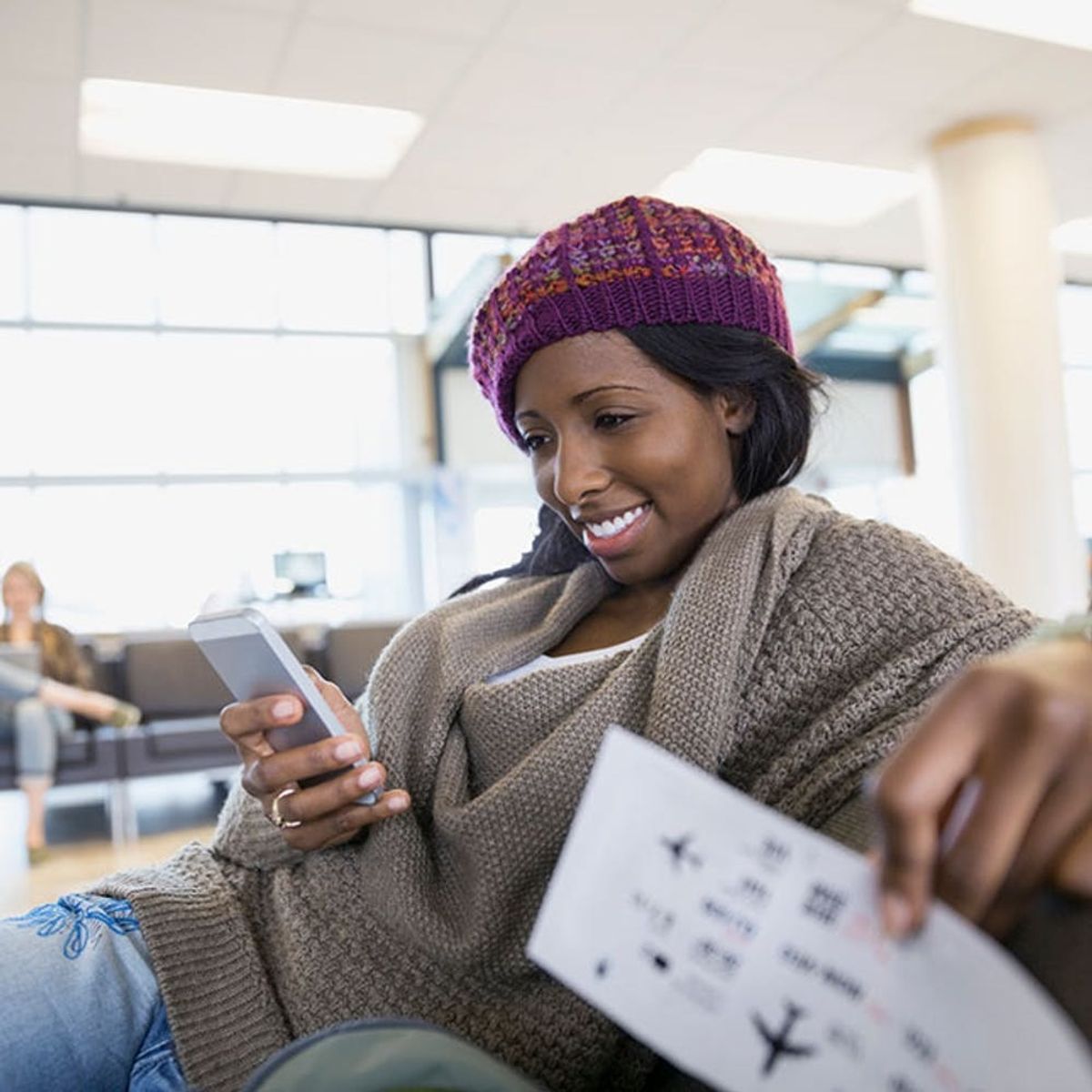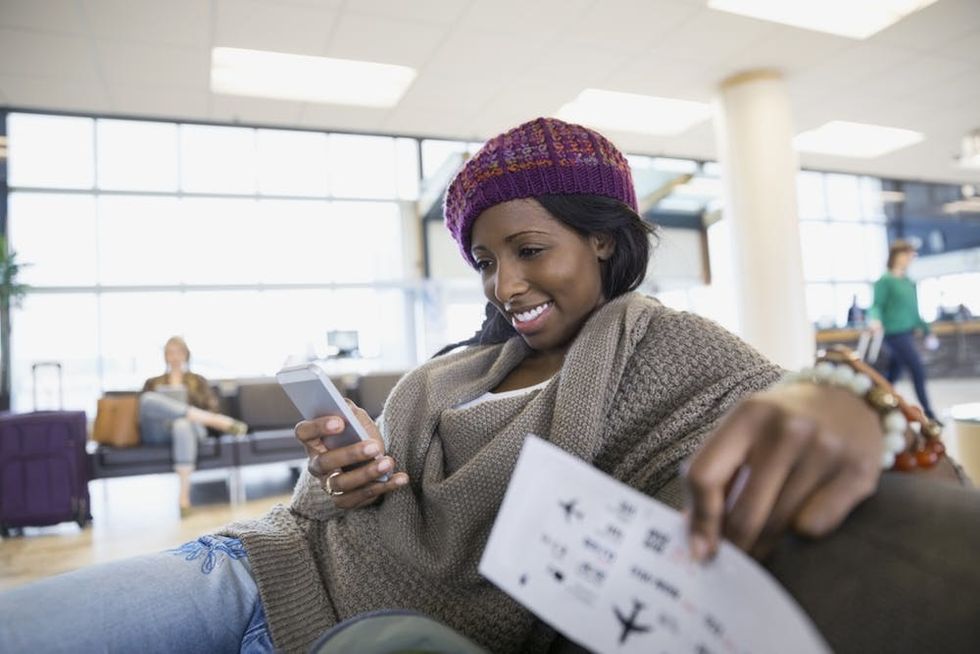Your flow may be interrupted when you leave home.
Why Traveling May Give You Irregular Periods

We totally get it: On a trip, you don’t want to even think about getting your period, let alone talk about periods. You can track your cycle a million times to know exactly when to anticipate it, but unfortunately, you still can’t will it to arrive on schedule (if only!). During your travels, you may notice that your period starts to fall out of sync, make you feel sick, or even disappear altogether for the month. Doctors say it’s common to have early, late, or even missed periods while you travel, especially if you’re traveling internationally or through a different time zone. We chatted with some experts to discover why your vacation plans may naturally mess with your cycle.

Why It Happens
The major players here are hormones, explains Joshua Klein, chief medical officer and reproductive endocrinologist at Extend Fertility in New York City. Your whole menstrual cycle depends on them to stay regular, to ovulate, and then to either prepare for pregnancy or release the egg during menstruation. “While many hormones are involved in the control of your menstrual cycle, two important ones are known to be directly related to travel and stress: cortisol and melatonin. Changes in sleep schedules, like early flights, time zone changes, and added stress can have some effect on these hormone levels,” Klein says.
A change in the levels of melatonin (the hormone that regulates your sleep schedule) or cortisol, the classic stress hormone, can alter ovulation, according to Klein, which then disrupts your period’s normal schedule. While yes, you may be on vacation and relaxing more than you might be if you were back at the daily grind at home, there are still stressors present that affect your body’s natural rhythms. You could also be traveling for business, which likely brings additional stress. “Anything that throws your body out of its normal routine can cause ‘stress,’ which can trigger hormonal changes. This can include travel anxiety, a change in sleep schedule, or a shift in eating habits — all things that often accompany travel,” he says.
Your birth control can also have an effect on your cycle’s timing. For example, if you’re on the pill and used to taking it at a certain time at home, but had a late, leisurely dinner or didn’t head back to your hotel room all day, this can make a difference. “Taking it at the same time that you take your pills at home will keep things regular,” says physician Sophia Yen, founder of Pandia Health, a birth control delivery service. Or, try a different form of contraception if you’ll be traveling more frequently to be safe. “Going on methods that last longer than one day will also help make it more regular, such as a ring, which you only have to worry about inserting once a month; a patch, which you apply once a week; or an IUD, which is inserted every five years,” Yen adds.
What to Do About It
There may be natural ways you can help your body stay on track, says holistic fertility specialist Aumatma Shah. First, diet is a huge factor in maintaining your hormonal balance. “Avoid sugar and excessively processed carbs, as well as meats that are high in excess hormones,” she recommends. And though it’s a challenge, especially when you’re in a different time zone (or just want to eat a ginormous brunch in the middle of the afternoon), keeping your meal schedule as close to regular as possible helps your body more than you realize. “Maintaining steady blood sugar and insulin levels will support healthy hormones and steady menstruation,” Shah says.
And while you may have brutal jet lag or want to stay out all night enjoying your cruise ship’s parties, sticking to your sleep routine is what keeps your melatonin levels in check in order for your period to arrive on time. As always, sleep is not just about quantity, but quality. “Make sure that sleep is rejuvenating: at least seven to eight hours, where you feel rested in the morning,” Shah advises. The other important piece of the puzzle is stress; keeping those levels low by using tools like meditation on the go or even a quick yoga class in the airport help keep cortisol down and allow all the phases of your cycle to take place as usual (here are some more stress relievers to get you through any travel-related crisis).
Here’s why you shouldn’t panic: If your period only turns up late or skips once, it’ll likely get back on schedule when you return home, Klein says. If there’s a possibility you may be pregnant, definitely start by taking an at-home test. But if there’s no shot you are, chalk it up to the whirlwind of traveling. However, once you’re back in your regular environment and routine, if you still notice spotting or irregularity, or miss more than two periods after returning, Klein advises following up with your OB/GYN to be sure you’re healthy. In the meantime, try not to worry too much about your period and go with the flow on your adventure.
Have you skipped your period on vacay but got back on track after? Talk to us on Twitter @BritandCo.
(Photo via Getty)



















